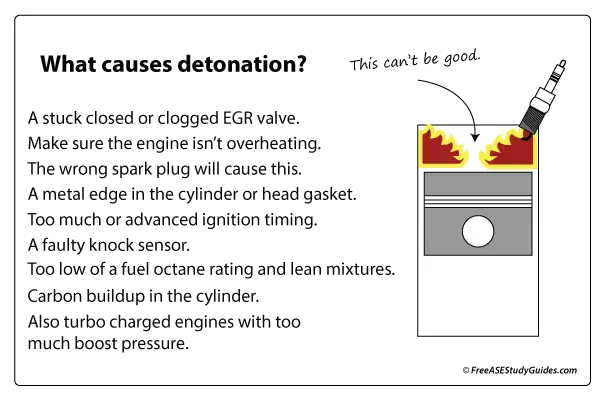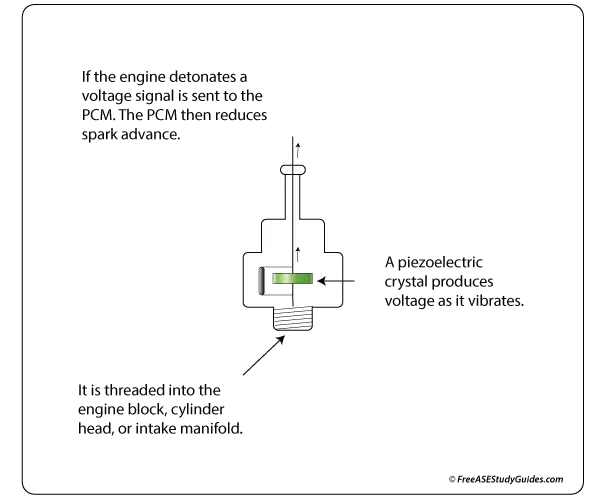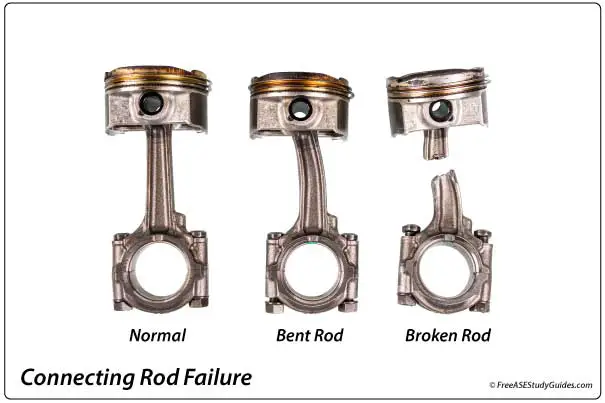Engine Detonation and Preignition

Detonation is a problem caused by colliding flame fronts in an internal combustion engine. The spark plug creates only one, and the other is undesired. When the air/fuel charge ignites out of time and elsewhere in the chamber, a separate and undesired flame front ignites after the spark plug fires. These competing fronts create a loud knock when they collide. It can result in severe engine damage, like bent rods and damaged pistons.
Engine Preignition
There is a difference between detonation and preignition. Mostly regarding when the flame front started and how it propagates through the chamber. Preignition is when a flame ignites in the combustion chamber before the spark plug fires, revealing itself as a slight knocking sound heard during acceleration. Knock occurs when the peak of the ignition process no longer occurs at the optimal moment in the engine's timing.

Most engines have a knock sensor that retards the engine's timing to prevent this harmful condition. This condition raises cylinder pressures. The competing fronts collide, creating this audible knock that resonates down the piston, through the bearings, and onto the crankshaft. Ouch!

These ignition problems have several causes, and the results can be destructive. Most have to do with temperature and timing. Other factors to consider include whether the engine has been modified or has there been any changes to the ignition timing recently. Has the customer used a different fuel? Fuel octane rating has much to do with its ability to resist early or preignition. Check for TSBs in case of any inherent issues with the make and model.